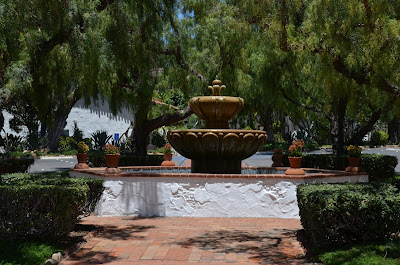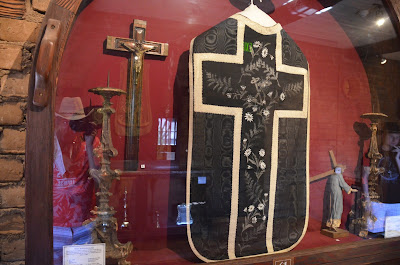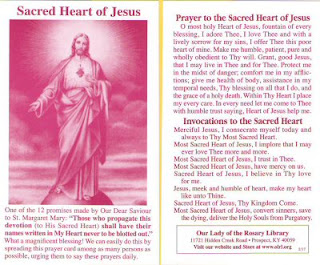We must ask ourselves before we soon begin Lent:
Is our process of purification a priority now or are we putting everything off until Purgatory?The meditation themes for improvement of the "requisite qualities" of Christian heart, to make it worthy to receive the seeds of Divine Sower, Our Lord Jesus Christ. Fragments taken from
"Divine Intimacy" by Fr. Gabriel of St. Mary Magdalen, OCD.
"The Night of the senses"PRESENCE OF GOD - O lord, strengthen my desire for union with You, so that I may have the courage to face, for love of You, the total purification of the senses.
MEDITATION.
1. "In order to attain to divine union with God, the soul must pass through the dark night of mortification of the appetites and the denial of pleasure in all things" (J.C. AS I, 4,1). St. John of the Cross calls the total mortification of the senses the "dark night", because the soul that renounces every irregular attachment to creatures and to pleasure it might find in them, remains "unoccupied and in the darkness" (ibid., 3,1) as far as the senses are concerned.
It is to help us to enter this night, through which we must pass in order to attain to union with God, that the Saint tells us to mortify our inordinate tendencies toward sensible satisfactions. However, it is evident that even if we sincerely wish to mortify our senses, we cannot always avoid seeing agreeable things, listening to interesting news, eating appetizing food, and so forth. Sometimes sensible satisfactions will be imposed on us by the necessities of life, by the duties of our state, or even by our superiors. It is absolutely necessary, even in these cases, that our soul remain wholly free from all attachment to creatures and to sensible satisfactions. It will suffice to desire not to have this pleasure, and promptly to "mortify our senses, voiding them of such pleasure," depriving them of everything, "as though they were in darkness" (cf. ibid., 13,4).
In other words, we should not stop at the selfish enjoyment of what pleases our senses, but try to raise our heart at once to God by offering Him the enjoyment we feel and which He permits for the renewal of our strength, so that we may be able to take up again with greater generosity the practice of mortification.
In this way even natural joys will help to bring us to God and to increase our love. This is what St Therese of the Child Jesus called "to rejoice for Love." This is the pure doctrine of St. Paul, who said, "Rejoice in the Lord always"; and again, "Whether you eat or drink, or whatsoever else you do, do all to the glory of God" (Phil 4,4 - 1 Cor 10,31). If, on the contrary, we stop at the enjoyment of sensible things, we shall never be able to enter the night of the senses.
2. "The soul ordinarily enters this night of the senses in two ways: the one is active, the other passive. The active way consist in that which is the soul can do, and does of itself, in order to enter therein. The passive way is that wherein the soul does nothing, and God works in it, and it remains, as it were, patient" (J.C. AS I, 13,1). The active way include everything that we can do on our own initiative to rid ourselves of every affection for and attachment to creatures. For example, it is in our power to apply ourselves to the practice of poverty, corporeal mortification, penance, and chastity - all of which are virtues that detach the soul from the goods of earth and the satisfaction of the senses.
If we want to do all that we can to enter the night, we must practice these virtues generously, keeping our eyes fixed on Jesus, our divine model, who wished to give us an example in everything. But no matter how much we do, our own practices will never be sufficient to destroy completely all the roots of attachments. If we examine ourselves carefully, we shall see that, even in the practice of voluntary mortification, a little complacency may enter in because of what we have chosen, which is to our liking and according to our wishes. In order that our purification be complete, the work of God must intervene, that work which will bring us passively into the night of the senses. He does this by means of trials and contradictions both exterior and interior.
It is a time of submission rather than of action; we must accept with humility and docility all that God permits, without trying either to escape the trial or to lessen or change it. In the Ascent of Mount Carmel St. John of the Cross gives the picture of a soul which, "kindled in love with yearning, sings of the happy fortune which befell it to pass through the dark night. "In fact, to be brought into the passive night is one of the greatest graces the soul can receive, because then God Himself is preparing and disposing it for divine union. If we wish to obtain this grace, we must do everything we can to enter the active night, that is, we must practice renunciation and total detachment.
COLLOQUYO Lord, deign to come to me with Your grace and inflame me with Your love, that I may be able to plunge enthusiastically into the dark night which is to prepare me for union with You. Night does not please my nature which loves the light, the sun, the full radiant daylight. But with your help, and for love of You, why should I not be willing to deprive my senses of all satisfactions and to annihilate them in the night, when all it amounts to is the giving up of a few worthless trifles in order to have the enjoyment of You, in whom are all light, all joy, all happiness? .......
"O Lord, keep far from the heart of Your servant the thought that any kind of joy will bring happiness! On the contrary, there is a joy which is not granted to the wicked, but to those who honour You unselfishly. You are their joy. All happiness consists in this: to rejoice in You, because of You and through You; there is no other. He who believes that any other happiness exists is pursuing a strange and false joy" (St Augustine)


























